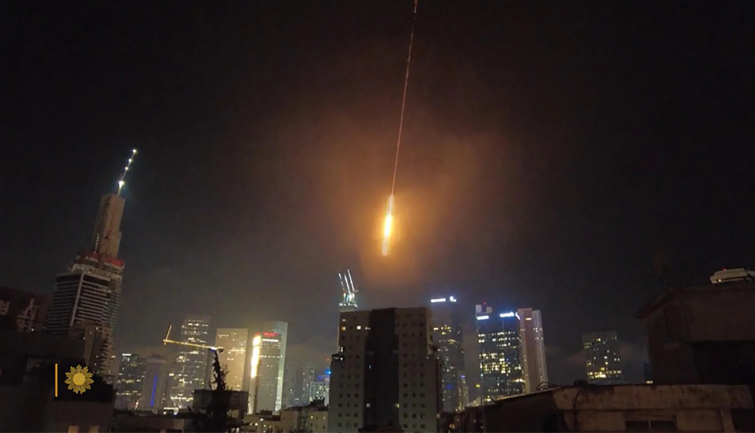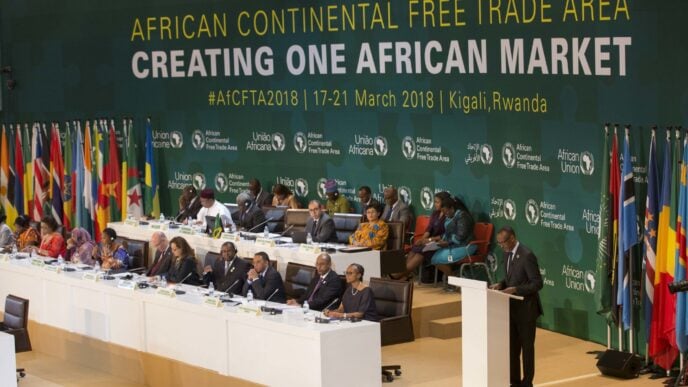In the heat of the war between Iran and Israel, many around the world were both perplexed and relieved when, last Monday, June 23, President Donald Trump of the United States of America announced a ceasefire between the antagonists. The previous day, he had authorised a bombing of the nuclear sites of Iran, which Israel had claimed to have destroyed over the 12-day bombing exercise. Apparently, the Americans were convinced that, despite Israeli claims, Iranian nuclear facilities had substantially survived the Israeli attacks. Convinced of this from American Intelligence assessments, President Trump approved the bombing of the Iranian nuclear sites with American B-2 Bombers using bunker-busting ordnance that could penetrate deep down where the Iranian nuclear facilities were reportedly located.
The possibility of Russia and China joining the war behind Iran loomed large, and this raised the possibility of a regional and even global war, which would most likely involve the use of nuclear weapons, was alarming.
In light of the strikes on Iran, questions have arisen as to whether the US was going to sustain the air campaign and put boots on the ground to fulfil the objective of regime change. There were also questions as to whether the US had intervened to ‘’save’’ Israel from further air strikes especially as intelligence reports had indicated that Israel was fast depleting its stock of ‘’Iron Dome’’ interceptors which would effectively give the Iranians a free open hand to land their drones and missiles on Israeli targets unimpeded.
So, what really happened?
Advertisement
Quite simply, what really happened to force the hand of the US was that after 12 days of unrelenting, intense bombardment, Israel could not achieve its target of knocking out Iranian nuclear sites nor effect the regime change under ‘’Operation Rising Lion’’ as enunciated by Prime Minister Benjamin Netanyahu. On the contrary, Israel was heavily straining from the unprecedented destruction of its cities and major military, scientific and economic infrastructure by pinpoint strikes from Iranian missiles. Had the war continued for another week, Israel would have been so thoroughly devastated that the only option left for it would have been to deploy nuclear weapons against Iran.
Israel had been there before in its history. During the Yom Kippur War in 1973, the Egyptian forces having breached the Bar Lev Line of Israeli defences and seemed intent on rolling into Tel Aviv, there was great panic among the Israeli government. Prime Minister Golda Meir and Defence Minister Moshe Dayan frantically called the US secretary of state Henry Kissinger and threatened that if the Egyptian advance was not halted, Israel would use nuclear weapons not just on the Egyptian army but also on the capital Cairo and the giant Aswan Dam which would have almost certainly resulted in unprecedented catastrophic consequences for Egypt. To prove they were serious, the Israeli Chief of Airforce Benny Peled, had readied a squadron of fighter aircraft and bombers to that effect.
To prevent this from happening, the Americans decided to provide satellite images of the gap between the Egyptian forces in the Sinai Peninsula to the Israelis, a critical intelligence scoop. Units of the Israeli special forces, the Sayeret Matkal (Benjamin Netanyahu and former Israeli PM Ehud Barak were involved), were thus dropped behind enemy lines to begin the acts of disruption of Egyptian forward operating bases, logistics and supply lines. This paved the way for the Israeli Defence Forces to punch through the Mitla Pass in the Sinai desert and encircle the Egyptian forces stationed there. This forced a stalemate between the Egyptian and Israeli forces in the 1973 Yom Kippur War, leading subsequently to a ceasefire. The ceasefire announced by President Trump borrowed from the book of a similar one during the 1973 Yom Kippur War.
Advertisement
In the Iran-Israeli war, as happened in the Yom Kippur War, the immediate objective of the American intervention was most likely intended to ‘’save’’ Israel from further pummeling from Iran and prevent the possible use of nuclear weapons by the Israelis. In the medium term, the Americans also hoped to persuade the Iranians to resume talks on the nuclear issues, having had their nuclear development set back by years from the bombing by American bombers.
In the long term, the Americans hoped that through negotiations, the Iranians could come to a Camp David-style treaty as Egypt had reached with the Israelis in 1977, four years after the Yom Kippur War. The Americans reckon that this process could lead to a pacification of Iran, removing the perceived ‘’threat’’ it poses not just to Israel but also to the Gulf Arab states and American and Western interests in the Middle East.
But as intelligence assessment has shown, the strikes by both the Israelis and the Americans had not obliterated Iranian nuclear facilities as claimed, and as the Iranian people had not risen against the Mullah theocracy in Iran as hoped, it is clear that the Americans and Israelis would have to recalibrate their tactics in this war. Iran had not only emerged from this war with a justifiable claim of achieving moral, psychological and strategic victory over both the Americans and Israelis.
In this regard, the ceasefire announced by President Trump looks more like a strategic withdrawal to pause the punishing barrage of missiles that Israel had been subjected to by Iran, to assess the damages on Israel especially regarding the failure of the ‘’Iron Dome’’ to intercept most if not all of the Iranian missiles, to also by the same token to confirm whether the objective of obliterating Iranian nuclear sites have been achieved.
Advertisement
With Israel subjected such unprecedented destruction as admitted by President Trump in terms of lives and infrastructure, and with Intelligence reports confirming that a substantial part of Iran’s nuclear facilities have survived, coupled with the fact that the much hoped for rising by the Iranian people to topple the government had not materialized, it is quite likely that the Americans and Israelis will return to strike at Iran in order to ‘’finish the job’’.
With Iran striking a defiant, triumphant mode and its decision to quit the nuclear non-proliferation treaty and the Mullah’s still in power, and refusing to come to the negotiating table, the Americans would consider it a matter of strategic interest to have a go at Iran once again this time with much more overwhelming force possibly in the not distant future. I do not foresee the Americans and the Israelis, including the western allies and American client states in the Middle East, allowing Iran to exist as it is in the region.
Lessons for Nigeria
Can Nigeria function with 800 sanctions directed at it for 46 years since 1979, as Iran did? Can we, in that period under the tightest and most punishing of restrictions to trade, financial transactions and freezing of our billions of dollars in foreign banks, build first-class infrastructure, including metros and relatively efficient transportation?
Advertisement
Can we build refineries, oil pipelines and critical oil infrastructure under such a situation? Can we exponentially develop and increase our power and energy while under sanctions for this long period? Can our military build a cutting-edge military-industrial complex from scratch that can substantially supply our military needs under sanctions? Can we develop a military doctrine that leverages our strengths and advantages and works towards minimising our weaknesses?
Iran did all these while labouring under the most comprehensive sanctions diligently implemented by global institutions. Iran today is reckoned globally as among the top five in propulsion and rocket technology, cyber, AI and Space Science. This is so much so that it felt confident in facing up to the might of two nuclear powers, one of them arguably the greatest military power on earth.
Advertisement
The Iran-Israel war offers instructive lessons on how to rely mainly on our thoughts and efforts in developing Nigeria, our country. We have the talents, the resources and all the ingredients necessary to lift ourselves up from where we are now. What is lacking is the will that we necessarily need to do so. (Concluded)
Gadu can be reached via [email protected] and 08035355706 (Texts only)
Advertisement
Views expressed by contributors are strictly personal and not of TheCable.













